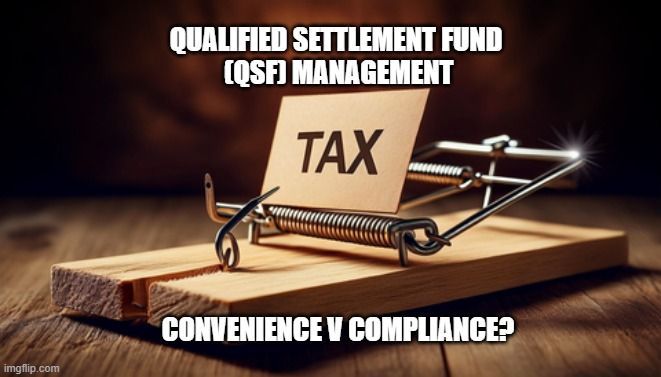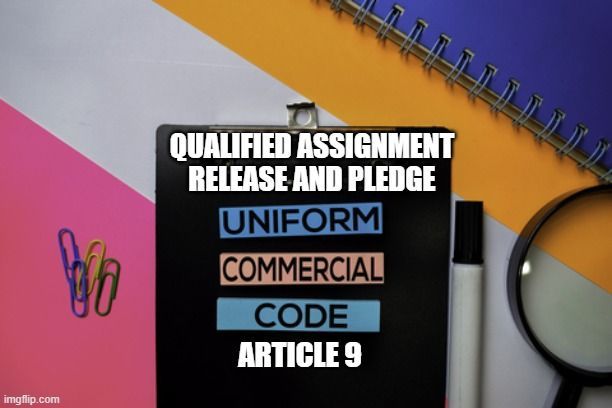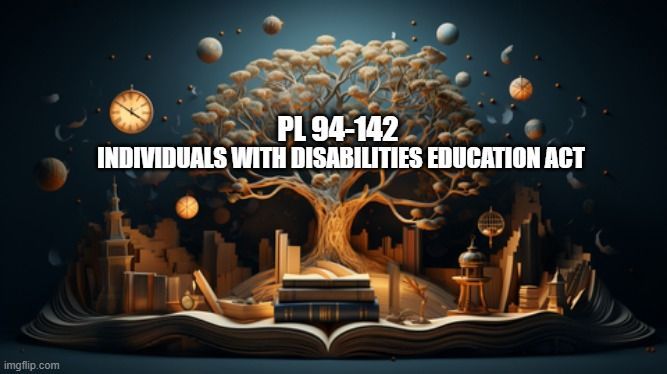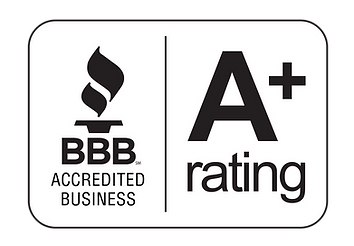IRC 130(c) Unwind Clause in Qualified Assignments | Best Practices
John Darer Reviews What Can Happen Without Proper Care
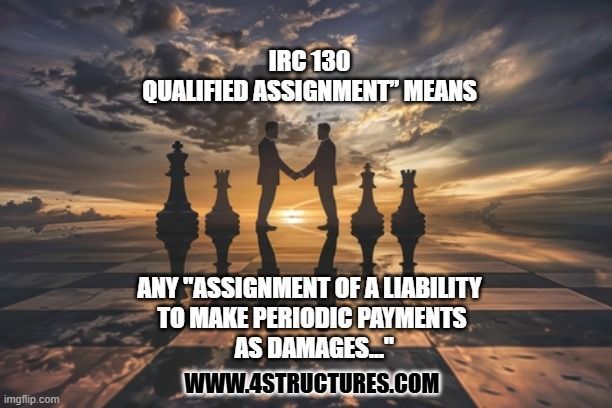
In this blog John Darer reviews what can go wrong if a qualified assignment is not completed properly and makes past the life insurer's new business department.
What Can Go Wrong if a Qualified Assignment is Not Done Properly?
An asset/liability mismatch caused by adverse taxation of annuities owned by non natural persons highlights one of the reasons why defendants and insurers and their settlement consultants must be certain that a qualified assignment meets each of the requirements of IRC 130(c).
As expressly stated in the Internal Revenue Code:
IRC 130 (c) Qualified assignment
For purposes of this section, the term “qualified assignment” means any assignment of a liability to make periodic payments as damages (whether by suit or agreement), or as compensation under any workmen’s compensation act, on account of personal injury or sickness (in a case involving physical injury or physical sickness)—
(1) if the assignee assumes such liability from a person who is a party to the suit or agreement, or the workmen’s compensation claim, and
(2) if—
(A) such periodic payments are fixed and determinable as to amount and time of payment,
(B) such periodic payments cannot be accelerated, deferred, increased, or decreased by the recipient of such payments,
(C) the assignee’s obligation on account of the personal injuries or sickness is no greater than the obligation of the person who assigned the liability, and
(D) such periodic payments are excludable from the gross income of the recipient under paragraph (1) or (2) of section 104 (a).
Secured Creditor OK
"The determination for purposes of this chapter of when the recipient is treated as having received any payment with respect to which there has been a qualified assignment shall be made without regard to any provision of such assignment which grants the recipient rights as a creditor greater than those of a general creditor".
Most of the Requirements are Pretty East, BUT
Most of the requirements are pretty easy, but let's say you have a death case where the decedent extensively suffered for close to 6 years prior to his or her death and such conscious pain and suffering and this fact and alleged damages resulting therefrom was extensively pleaded.
There appears to be no definitive authority in the Internal Revenue Code, or in the form of an IRS Private Letter Ruling, which permit distributions from an estate for a decedent's pre-death claim to be assigned under IRC 130(c). This author has not been convinced otherwise by three separate lawyers who are tax authorities with an expertise in structured settlements.
Isn't a Defendant/ Insurer looking for a closed file with a cost not to exceed the settlement funding amount bargained for?
- If there is an unwind as the result of damages not qualifying under IRC 104a (e.g. inheritance v damages), then the qualified assignment (novation) is of no effect and ownership of the qualified funding asset transfers to the Defendant or Insurer which has an obligation to make payments. VERY IMPORTANT: If the Defendant or Insurer as Assignor has taken a tax deduction for the amount of consideration paid to the assignee in a prior year then the value of the now "unqualified funding asset" may need to be included in income. DISASTER!
- The next problem is that the taxation of annuity income under IRC 72(u)(3)(C) means that an asset/liability mismatch occurs. Under IRC 130(c), the qualified assignment company may exclude this income so it's a wash (see #3 below). On the otherhand, the bemused owners of the "new asset" (assuming a US based Defendant/Insurer), would be taxed on the income. This simply assures that the cost they bargained for will be insufficient to make the payments they would be obligated to pay.
- See Technical Explanation to Victims of Terrorism Act of 2001 p 24 "A qualified funding asset means an annuity contract issued by an insurance company licensed in the U.S., or any obligation of the United States, provided the annuity contract or obligation meets statutory requirements. An annuity that is a qualified funding asset is not subject to the rule requiring current inclusion of the income on the contract which generally applies to annuity contract holders that are not natural persons (e.g., corporations) (sec. 72(u)(3)(C)). In addition, when the payments on the annuity are received by the structured settlement company and included in income, the company generally may deduct the corresponding payments to the injured person, who, in turn, excludes the payments from his or
her income (sec. 104). Thus, neither the amount received for agreeing to the qualified assignment
of the liability to pay damages, nor the income on the annuity that funds the liability to pay
damages, generally is subject to tax".
Download JCX-93-01 | Joint Committee on TaxationVictims of Terrorism Tax Relief Act of 2001IRC5891 p23
From the plaintiff's standpoint
- An unwind of the assignment where the qualified assignment has included a pledge, means a loss of security interest.
- A QSF does not solve the problem as the QSF will have likely wound up its affairs by the time a potential IRC 130(c) unwind occurs.
- Pay attention recent developments in Wyoming as to "continuing juridiction" . See my September 3, 2025 blog Qualified Settlement Fund Not So Best Practices |Pay Attention!
- Attempting to cure the problem by naming the plaintiff the owner of the annuity if IRC 130(c) fails, is also not a prudent solution. What was a "qualified funding asset" no longer be "qualified" and will then likely generate taxable income above the present value of the asset on the date of ownership change, according to tax lawyer David Higgins.
This information highlights the fact that structured settlements ,while simple on their face, have an inherent complexity that must be carefully addressed when the structured settlement is placed.


